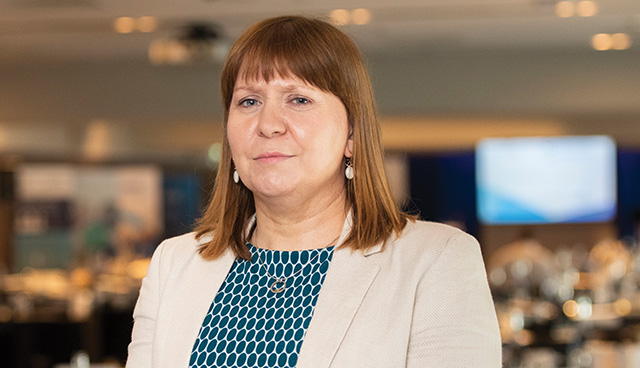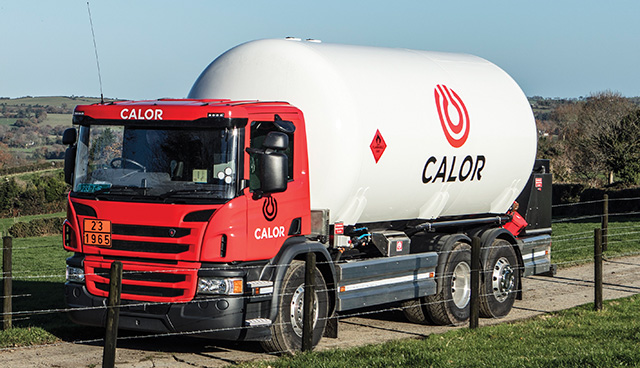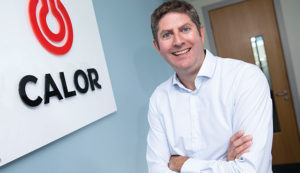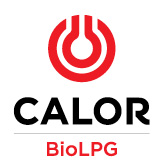
Is Orkney the hydrogen capital of the world?
25th November 2019
Addressing the cyber threat to electricity networks
25th November 2019Innovation at the heart of Calor’s low carbon strategy

“2020 looks set to be the year in which consumers, businesses and policy makers fully get on board with the drive to decarbonise Ireland’s economy and society. Calor is poised to help deliver a cleaner economy for rural Ireland,” says Calor CEO Duncan Osborne.
 When Calor launched BioLPG in Ireland in 2018, they believed that they would achieve 10 per cent of sales as renewable by the end of three years. The company is poised to hit that target with a year to spare. Ireland’s first commercially available renewable LPG (Liquefied Petroleum Gas) has proved such a hit with customers that Calor are looking to significantly increase supply of the product into the Irish market.
When Calor launched BioLPG in Ireland in 2018, they believed that they would achieve 10 per cent of sales as renewable by the end of three years. The company is poised to hit that target with a year to spare. Ireland’s first commercially available renewable LPG (Liquefied Petroleum Gas) has proved such a hit with customers that Calor are looking to significantly increase supply of the product into the Irish market.
BioLPG is 100 per cent renewable LPG created from a mix of sustainably sourced renewable vegetable oils, residues and waste materials. BioLPG burns in the same way as conventional LPG and can be blended and used in existing LPG-powered appliances and applications. BioLPG is fully traceable and is certified under the International Sustainable Carbon Certification (ISCC) scheme.
Since its initial launch on the market for domestic and industrial customers, Calor has developed a number of new product extensions, including BioLPG in outdoor cylinders and BioLPG for forklift trucks (FLT). All of these innovations are helping to reduce emissions in the market.
One of the keys to the success of BioLPG is the ease of switching. Calor BioLPG is identical in appearance, performance and application to conventional LPG. BioLPG is transported and stored in the same tanks and used in the same boilers and appliances as LPG. The transition from LPG to BioLPG is totally seamless.
Calor CEO, Duncan Osborne explains the importance of this easy transition: “The kind of wholesale change that we need in society is difficult to achieve. Ideally you want simple steps that people can feel comfortable with. Switching to BioLPG is easy, that is why it is working so well. For LPG customers it is the same equipment and the same way of doing things. For people switching from oil or other fuels, gas is a well-known fuel that most people are comfortable using. That makes it easier for them to switch.”
Another innovation to come to the market in 2019 was Calor LNG. LNG is natural gas which has been liquefied. Aimed at the very large energy user and the transport sector, Calor LNG delivers the benefits of natural gas to businesses anywhere in Ireland. In April, Aurivo Dairy Ingredients Ltd. became the first customer for LNG in Ireland. The product will power their powdered milk production at their newly upgraded facility in Roscommon, delivering cost and emissions savings and greater flexibility. The new LNG installation at Aurivo in Roscommon took approximately two months to complete and is now operating successfully, significantly reducing Aurivo’s carbon footprint.
While LNG, unlike BioLPG, is not a renewable fuel, it does deliver very significant environmental benefits when compared to heavy fuel oil, including significantly reduced carbon emissions and lower particulate emissions – helping to improve air quality. Installation of LNG will open the door to a progression towards future installation of BioLNG, a renewable form of LNG which Calor is already working towards.
The new Calor CEO, Duncan Osborne, has extensive experience of LNG, having overseen the roll out of the lower carbon fuel across Europe for Calor’s parent company, the SHV Energy Group. He has indicated that Calor are examining the development of a network of LNG filling stations in Ireland.
“Transport has been a very difficult sector to decarbonise. Our trucks and buses account for about 20 per cent of transport emissions. LNG is commonplace as a lower carbon fuel for HGVs and buses in Europe. Our goal is that ultimately, these trucks will switch to BioLNG. This is a natural progression for Calor as we feel there is real potential for the future with this clean technology.”
BioLPG and LNG now join Calor’s traditional LPG product, used by over 50,000 customers in Ireland, in offering domestic and industrial customers the chance to lower emissions. All three offer significant carbon reductions when compared to oil and solid fuels. With this range, making a cleaner choice has become a lot easier.
2020 looks set to be the year in which consumers, businesses and policy makers fully get on board with the drive to decarbonise Ireland’s economy and society. Calor and many of their customers have been early adopters in this regard. With the development of new products in the BioLPG range and the introduction of other lower carbon technologies, Calor is poised to help deliver a cleaner economy for rural Ireland.
T: 1850 812 450
W: www.calorgas.ie

